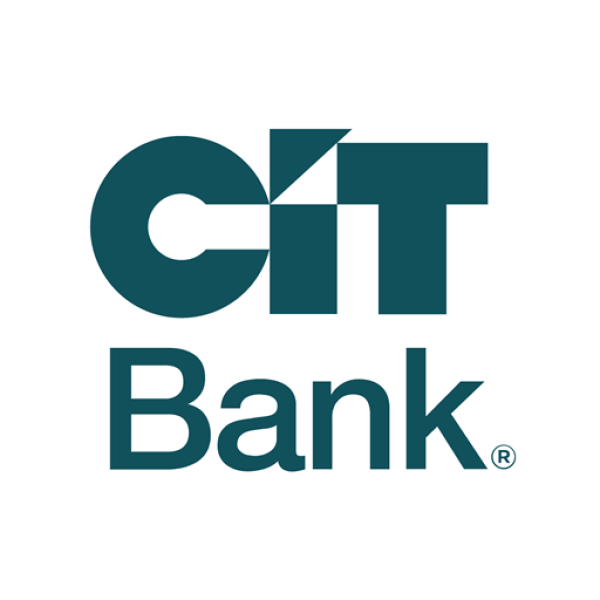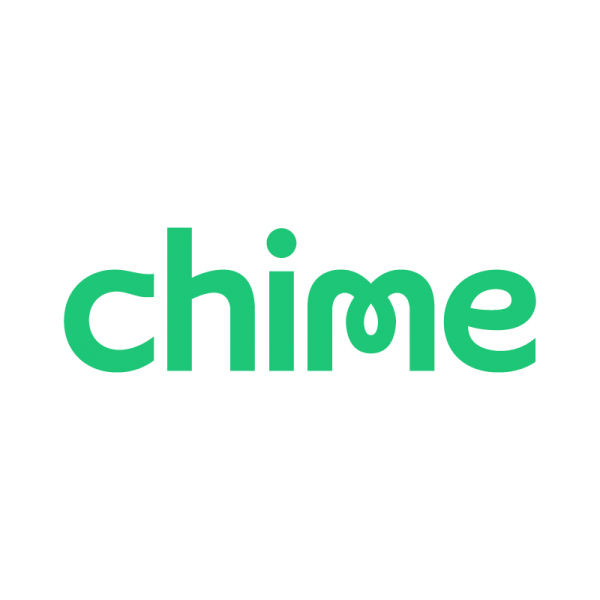CIT Bank CDs
To help you slowly increase your savings, CIT Bank offers a variety of CD terms and rates up to 4.6 percent.
The terms of CIT Bank CDs differ widely, from six months to five years. CIT Bank offers stronger rates on its short-term CDs, even though CDs typically pay greater interest when you're ready to tie up your money for a longer period. But to open one, you'll need to stash away at least $1,000.
securely on the bank's website
To assist you in selecting the ideal term to meet your financial objectives, CIT Bank provides a variety of CD products. In addition to CIT Bank Jumbo CDs and the CIT Bank No Penalty CD, the bank also provides Term CDs and RampUp CDs.
All CD interest is accrued monthly and increased daily. The bank's online tools are silent on whether account holders can take interest payments before maturity. But if you take money from your deposit before it matures, you'll have to pay a fee.
You will lose three months' simple interest for periods of up to one year. You give up six months' simple interest for periods longer than a year and up to three years. Additionally, you will lose out on 12 months of simple interest for periods longer than three years.
|
CD Term |
APY |
Minimum deposit |
|
6 months |
3.00% |
$1,000 |
|
11 months |
3.50% |
$1,000 |
|
13 months |
3.50% |
$1,000 |
|
18 months |
3.00% |
$1,000 |
Checking account details
Advantages of a CD CIT Bank Account
- You can gain interest in your money by purchasing CDs. The interest rates, which are fixed and typically greater than those for savings accounts, are disclosed.
- The majority of banks give CDs with terms ranging from one month to five or six years.
- Your holdings in CDs won't go down in value.
- There are no recurring monthly costs for CD accounts.
Drawbacks of a CD CIT Bank Account
- You cannot cancel until the semester is over. With CDs, there are fixed terms and typically no early withdrawal privileges.
- Most CDs only permit one original deposit. Although they are not as prevalent, some banks offer add-on CDs, which let you add more to the CD in the future.
No Penalty, 11-month CDs
Contrary to some banks, CIT provides a CD choice that allows you to withdraw your money without incurring any penalties seven days after you've funded it.
If you're new to CD investing and would like simpler access to your money, this choice might be helpful. With a $1,000 minimum deposit, you can establish a No-Penalty CD for a term of 11 months.
|
No-Penalty CDs |
Minimum Deposit |
APY |
|
|
11 Month |
$1,000 |
3.50% |
Jumbo CDs
Jumbo certificates of deposit are CDs that have a greater minimum balance requirement than conventional CDs. The Jumbo CD offers a larger interest rate in exchange. A CD is a form of savings account that offers depositors fixed or variable interest if they keep their money in the account until a specific maturity date.
Interest rates on jumbo CDs are usually higher than those on standard CDs. They do, however, demand much higher minimum amounts. Depending on the term, you can establish a $100,000 Jumbo CD at CIT Bank for an interest rate of up to 0.50%. To discover options with higher interest rates and lower minimum deposits, you can compare CD rate options.
Traditional CDs generally have higher rates of return than regular savings accounts or checking accounts that pay interest. Similarly, the jumbo CD will pay a rate that is even higher than what is provided by conventional CDs.
Jumbo CDs have a greater interest rate because they have a higher minimum investment than regular CDs. Although the entry point for most jumbo CDs is $100,000, some financial institutions that sell them might have a few products with lower entry levels. Jumbo CDs are regarded as risk-free assets because the Federal Deposit Insurance Corporation insures them up to $250,000. (FDIC). Jumbo CDs are another product that credit unions offer, and the National Credit Union Administration provides security for these investments. (NCUA).
|
Jumbo CD |
Minimum Deposit |
APY |
|
2 Year |
$100,000 |
0.40% |
|
3 Year |
$100,000 |
0.40% |
|
4 Year |
$100,000 |
0.50% |
|
5 Year |
$100,000 |
0.50% |
Term CDs
These basic CDs come from CIT Bank. They do, however, offer remarkable interest rates that are readily competitive with the greatest CD rates available. One can be opened with terms as little as six months and as long as five years. Like with most CD accounts, if you open a CD with a longer term, you'll receive a larger interest rate. For instance, the 5-year Term CD from CIT bank now has an APY of 0.50%.
You can open an IRA CD for the same conditions and rates as term CDs. This type of savings account combines the financial benefits of an IRA with the fixed interest rates of a CD. If you're close to retiring and want to safeguard the nest egg you've worked so hard to accumulate over the years, this might be a good alternative.
RampUp CDs
One time per term, CIT's RampUp CD offers the choice to "ramp up" to a higher rate, which may be advantageous if the Federal Reserve raises rates at that time. RampUp CDs are available for terms of one to four years, and a minimal opening deposit of $25,000 is needed.
The only CIT account that is closed to new clients is this one. So, before you think about a RampUp CD, you must first open up another CIT bank account.
Penalty for Withdrawing Early
You can freely withdraw your interest at any moment. But if you remove any money from your principal, you'll have to pay a fee for the early withdrawal. Thankfully, the cost is much more liberal than what other banks charge.
Comparison of Rates and CDs From CIT Bank
The Term CD rates offered by CIT Bank are trending far higher than rates provided by major national banks with brick-and-mortar facilities. Although being less competitive with some internet banks when compared to today's top CD rates. According to data from the FDIC, rates are also much higher than the national average for CD rates.
Given that CIT Bank's CD rates are reasonably comparable with online savings and money market account rates, a CD from this bank can be a decent choice for investors who aren't concerned with liquidity. And want to put their investments out of reach. The money market account at CIT Bank offers 1.55% APY.
Although some people may not be able to afford this bank's CDs due to minimum deposits, the $100 threshold is standard for other banks.
Before obtaining a CD, make carefully research rates and terms from various banks and credit unions. This is to make sure you're getting the best return on your investment given the hefty early withdrawal penalties at this bank.
The 6-month, 13-month, and 18-month CIT Bank CD rates are some of the highest we've observed. The rest of its words, however, are below ordinary and leave much to be desired. When compared to the national average rate for a 1-year CD, which is 1.28% APY, CIT Bank's 1-year CD interest rate, for instance, is at 0.3% APY.
Although the $1,000 beginning deposit requirement isn't the lowest one available, the CDs' lenient early withdrawal fees make them a well-rounded savings product to help you grow your money.
Comparing CIT Bank CD Rates to Other Banks
With rates that can compete with even some of the biggest names in the banking business, CIT Bank provides a variety of CDs. However, as you can see from the table below, Discover Bank and other banks might be able to offer you higher rates for longer periods.
Thus, short-term investors may find Term CIT CDs appropriate.
|
CD Account |
CIT Bank |
Discover |
|
1 Year |
0.30% |
4.50% |
|
3 Years |
0.40% |
4.30% |
|
5 Years |
0.50% |
4.10% |
About CIT Bank
A simple collection of personal banking facilities as well as solutions for business and commercial banking are offered by CIT Bank, an online bank. On the consumer side, you'll discover a variety of products in addition to CDs, such as mortgages, savings, money market, and interest-bearing checking accounts.
Contact Notebanks if you have any more questions.
Checking account fees
-
Monthly Fee0
-
APY4.90% APY
-
Minimum Deposit to Open$1000
-
Out-of-Network ATM Transaction Fee0
-
Out-of-Network ATM Withdrawal Fee0
-
Overdraft Feen/a
-
Non-Sufficient Funds Feen/a
-
Foreign Transaction Fee1%
CIT Bank CDs FAQ
Investors have a variety of CD options to choose from, however, not all are provided by all banks. The term, Jumbo, and no-penalty CDs are examples of common CD kinds.
If you need to access the money invested in a CD before the maturity date, there is an early withdrawal penalty. This fine is typically represented as interest on the amount withdrawn for a specific number of days or months.
Regular savings or money market accounts would likely be a better option than a CD. Especially if you don't know when you'll need access to your resources to avoid potential early withdrawal penalties. Comparing CDs to savings accounts.
If you are looking for a CD period of 18 months or less, CIT Bank will probably stand out from the competition. Choosing CIT Bank over other online banks may also make sense. Especially if you want to open a specialized CD. Unlike certain financial organizations, CIT Bank offers jumbo CDs and a no-penalty CD.
Because it offers a variety of bank account kinds, the bank is a wise choice if you intend to open multiple bank accounts at the same financial institution. There is a money market account, a checking account that pays interest, and a high-yield savings account.
If you want to start a CD with a small opening deposit, it might be in your best interest to choose a different financial institution. Other online banks may provide long-term CDs at greater rates.
Your potential savings will increase the longer you hold a CIT Bank CD. Even if you are unable to put down the $100,000 minimum deposit required for Jumbo CDs, you will still earn a healthy return. The following table shows how your savings might look based on the term and interest rate of your CD.
However, keep in mind that CDs are made to lock in your money in exchange for a return on your investment. If you take money out of a CD before the term is over, CIT Bank will charge you an early withdrawal penalty unless you open a No-Penalty CD. This is referred to as the maturity point.
The first debit card you get is complimentary. You will receive one complimentary replacement each year if you end up missing it. Anything above this will incur a $10 charge. You could spend up to $45 on rush shipping if you need your card right away.
It is probably best to avoid using your CIT debit card while traveling overseas. This is due to the 1% foreign transaction charge that applies to any purchases made abroad or ATM withdrawals. This sum is comparable to other institutions.
If you enjoy traveling, it would be wiser to consider a credit card with travel rewards that don’t charge international transaction fees.
Yes. The FDIC insures CIT Bank CDs for a maximum of $250,000 per depositor.
Although some Jumbo CD periods are just a few days long, they are uncommon. The most typical minimum period for a jumbo CD is three months.
Banks and credit unions frequently offer savers higher interest rates on jumbo CDs than on smaller accounts because they have a much higher initial deposit requirement. Additionally, longer periods have higher interest rates. The higher interest rates serve as an inducement to decrease the liquidity of your funds.
If CIT Bank increases its rates on the RampUp CDs, you have the option to increase your rate once during the CD's term. Additionally, the RampUp Plus CD has the additional benefit of enabling you to increase your initial deposit once throughout the CD's term.
The new rate will apply for the remaining term of your CD if CIT Bank increases its rates on a CD in the RampUp series and you decide to exercise the option to raise your rate. The new rate is not retroactive. During the term of the CD, you may use this choice just once.
As long as it has been seven days since the funds have been received, you are eligible to request access to your No-Penalty CD's entire amount as well as any interest accrued.
During the 10-day (calendar day) grace time, you can handle your maturing CD using online banking or the CIT mobile app.
On June 1, 2015, a new rate limit became applicable to RampUp CDs that were created on or after that date. It restricts your ability to raise your APY to a maximum of twice the original APY, less than 0.05%.
You will be informed 30 days before the expiration date that your CIT Bank CD is about to expire. Your CD will automatically renew for the same period as before for your convenience. (At the current rate in effect on the date of your renewal).
Yes, at maturity, all CIT Bank CDs renew themselves immediately. When this occurs, they repeat for the same duration and price as before. The 13-month and 18-month certificates of deposit are the exceptions. Upon expiration, the 13-month certificate of deposit will automatically renew as a 1-year term certificate at the then-published APY, and the 18-month certificate of deposit will automatically renew as a 2-year term certificate at the then-published APY.
7 Best Checking Accounts for 2023
Featured Checking Accounts
| Bank | Monthly Service Charge | Minimum Deposit to Open | APY |
|---|---|---|---|
| CIT Savings Builder Account | 0 | $100 | 1.00% APY |
| CIT Bank CDs | 0 | $1000 | 4.90% APY |
| CIT Bank eChecking Account | $0 | $100 | 0.10% - 0.25% APY |
| Bank | Monthly Service Charge | Minimum Deposit to Open | APY |
|---|---|---|---|
| Comerica Bank Rich Rewards® Checking Account | $18 (can be waived / reduced) | $50 | 0.01% |
| Comerica Bank Premier Checking Account | $22 | $50 | 0.01% |
| Comerica Bank Comerica Platinum Circle Checking® | $0 | $50 | 0.10% / 0.25% |







